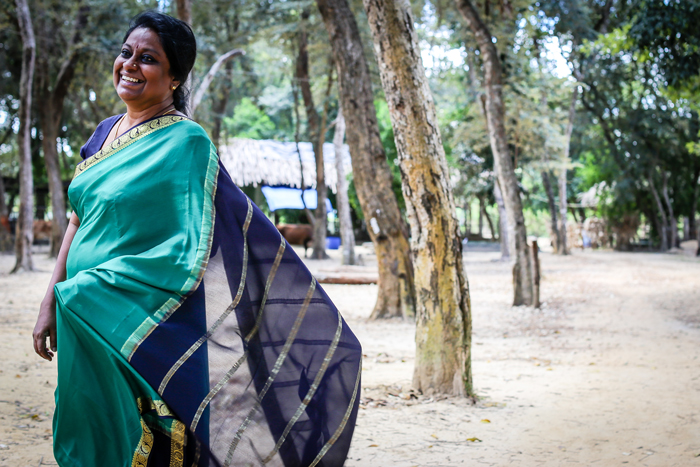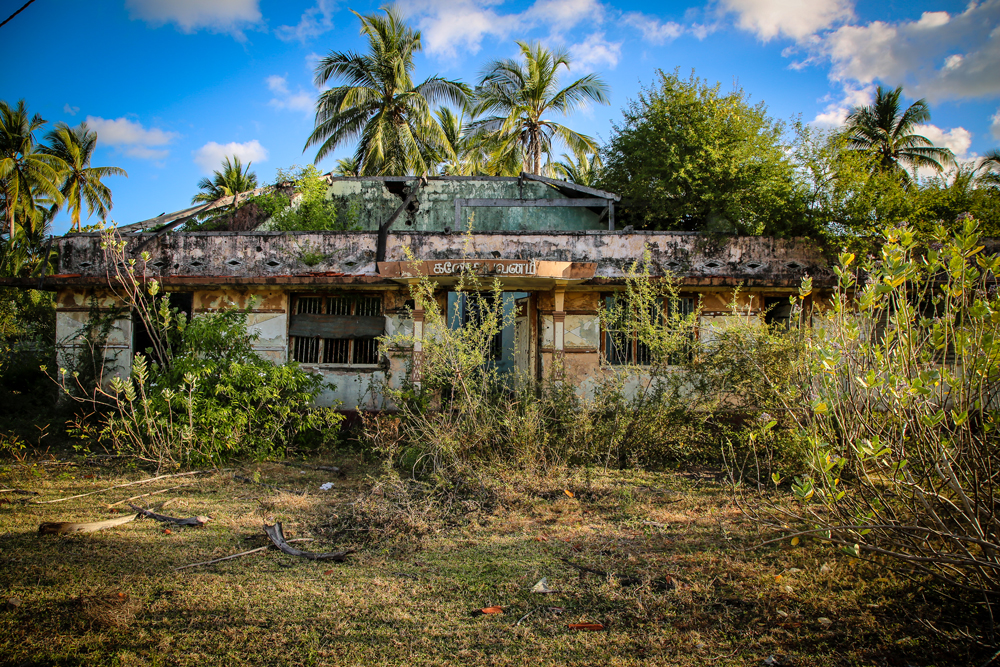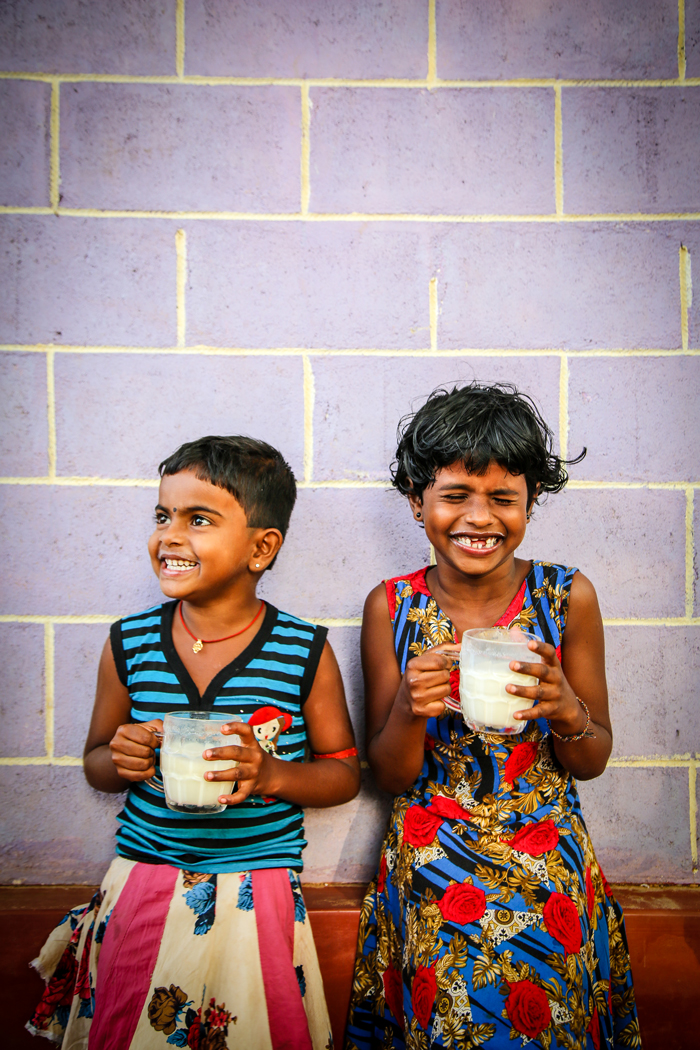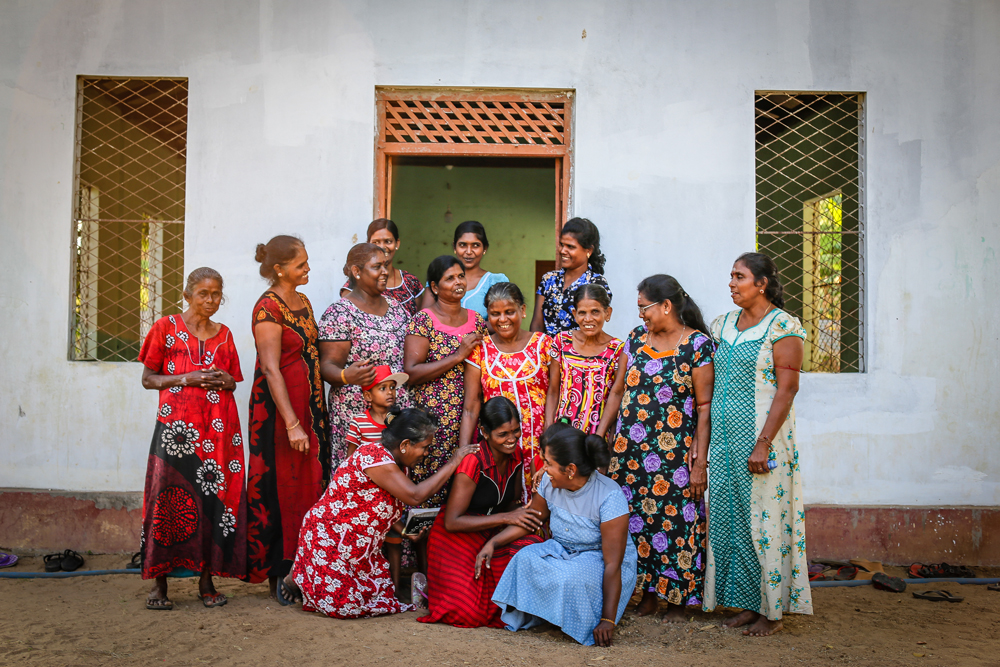Meet the woman changing the lives of thousands of war victims
9812 0
Imagine looking into the face of death not once, not twice, but five times. This was Selina PremKumar’s life and that of many people in Sri Lanka during the 26-year civil which began in 1983.
“I remember the military shooting down our street. My mother took us both into a room. She was kneeling and praying. She always had a ladder at the back of the house and she would tell us to jump onto the ladder and jump onto the next property and run, Selina said.
“We could hear the men opening the gates and trying to get into the houses. After some time, the shooting stopped.”
Selina’s biggest fear growing up was the fear of death. She was caught in a cross fire twice and experienced sleeping out in the middle of nowhere.

Selina PremKumar. (Photo credit: Helen Manson)
The Sri Lankan civil war officially ended in 2009. “The war took a lot from my people. Almost everyone lost a loved one.”
Selina’s near-death experiences gave her the courage to stand up and be a voice for her people. She created something sustainable that would help her community.
Selina is the CEO and driving force behind Yugashakthi, Tearfund’s partner in Sri Lanka. Yugashakthi is a for profit farmers company formed by Tearfund, to help vulnerable farmers after the war get a sustainable income.

Remnants of the Sri Lankan civil war that lasted for almost three decades. (Photo credit: Helen Manson)
Selina wanted to do something for smallholder dairy farmers.
“They are poor, and they don’t have sufficient means to educate their children or to feed their family three times a day. I wanted to do something for them, so that is who Yugashakthi is working with.”
Traditionally, Sri Lankan farmers have three main ways of creating an income. Paddy (rice), fishing and dairy. Dairy farming had never been a main source of income.
Selina saw dairying as successful because it can help spread the income throughout the year. It is also a good means of living for woman who lost fathers or husbands in the war, as milking of the family cows is traditionally done by the women. Lastly, a lot of children in Sri Lanka suffer from malnourishment as a result of a lack of protein in their diet, and milk is a good easy source of protein, and a traditional part of every family’s daily food.
Paddy cultivation has seasons and fishing relies on the condition of the sea. “We knew it would sustain their livelihoods and income,” she said.
In 2010, The New Zealand Government and Tearfund New Zealand came on board with the project. A year later, a small dairy programme was piloted. Eight farmers supplied 273L of milk and earned on average NZ $15 per month.
“We started with simple training looking at the feeding, breeding and animal health. These were the three core areas.”
Before the programme began, farmers didn’t know whether a cow had had enough to eat or drink. They didn’t know if the animal was in heat. They’d trust the animal would become pregnant and had no idea when the calf would be born. They had a lot of cows, but some wouldn’t even be milked.
“It’s a simple thing. But because it was not their primary income, they were not really bothered,” Selina said.

(Photo credit: Helen Manson)
“Dairying is only a small part of what we do. My heart was always for the wider community, especially for women and children who were traumatised and lost so much in the war"
“I lost my childhood because of the war; I didn’t want another child to go through that. I wanted to see children safe and protected.”
She also wanted to see women empowered. “I wanted to bring back the confidence hiding within them or buried under false values. We now have women’s groups and small help groups where they can meet and save together. We also started training them in confidence-building. The small groups provided the space for women to talk about their struggles. Together, they were able to find solutions to their problems.”
Now there are 7,500 children in youth groups, 1,500 women in savings groups and 4,500 farmers producing 500,000L a month! In October 2019, the model transitioned from a not-for-profit charity model to a business model. The Yugashakthi enterprise is now producing cheese, curd, yoghurt and ice cream.

The dairy project empowers 1,500 women through savings groups. Photo Credit: Helen Manson
“Yugashakthi stood up for the rights and protection of smallholder dairy farmers, women and children. Out of nothing, God created something huge. A dream can take you to a wonderful place,” Selina said.
“They come together and learn together. Through this, we are looking forward to helping to bring about unity and peace. The interaction brings trust between communities. This is what we need in this country.”
Would you like to be a part of the next chapter of this incredible journey? To get this project to the next level of reaching 10,000 farmers, it’s going to take not just the government, not just corporate donors, but incredible supporters, like you.
Yes, I would like to support!